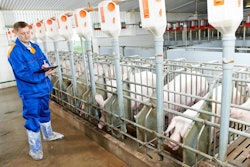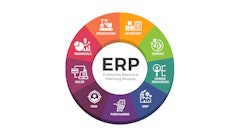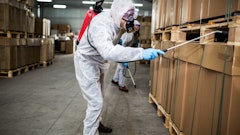A U.S. Department of Agriculture audit of Canada’s food-safety system calls on the federal regulator to strengthen oversight of sanitation and the humane handling of animals at meat-slaughtering plants.
The Canadian Food Inspection Agency (CFIA) received an “adequate” rating, the lowest of three scores that are meted out to countries deemed eligible to export food to the United States. The designation means Canada will be subject to more robust audits and its food exports will undergo more inspections at the U.S. border than those of countries whose food-safety systems were rated “average” or “well-performing.”
The findings from the tour of seven food-processing facilities, two laboratories and five Canadian Food Inspection Agency offices in the fall of 2012 were kept confidential until recently The Globe and Mail requested them through U.S. access to information law. The U.S. review reveals that auditors found sanitation issues, including flaking paint and rust on pipes and overhead rails, at a pig-slaughter facility in Langley, B.C. Problems were also observed at the former XL cattle-slaughter plant, then temporarily shut down amid the E. coli outbreak in which 18 people fell sick with potentially deadly bacteria.?
The federal government has revamped oversight of the CFIA, transferring responsibility to the Health Minister from the Agriculture Minister in October. The true effect of that change, whether it is substantial or cosmetic, is still being debated but the audit told CFIA to address the issues identified and strengthen its process for identifying health risks in food production.
The U.S. Food Safety and Inspection Service previously audited Canada’s system in 2009, visiting 23 processing facilities. The United States is a major market for Canadian meat, eggs and other food products. Canadian facilities and government oversight are reviewed to ensure they meet U.S. standards for export.
“There are always issues with audits, but overall, the audit findings were very good,” Tom Graham, director of CFIA’s domestic inspection division, said of the 2012 audit.
The CFIA plans to add extra oversight to its inspection program. The agency will establish a permanent inspection verification office in the spring, Mr. Graham said. The new office, which was recommended in an independent review of the XL contamination, will review inspection activities at food plants. To read more, click HERE.


















